Reviews: New books in April
Brigid Brophy's The King of a Rainy Country, Elaine Sciolino's Adventures in the Louvre, and more.
Before I get to the reviews, help me out: I’m planning on visiting the London Review Bookshop later this month. What Fitzcarraldo Editions book should I buy while I’m there? Sound off in the comments.
The King of a Rainy Country by Brigid Brophy
(McNally Editions, April 1; Originally published in 1956)
A lovely, light little book about Susan, a young woman in 1950s London who sets off with her sexually ambiguous roommate-cum-partner, Neale, in search of her former schoolmate, Cynthia, with whom she shared a brief, but profoundly affecting kiss when they were in their teens.
Brophy divides the book into three neat sections. In the first, we meet Susan and Neale and get to know the nature of their peculiar, yet comfortable relationship—they understand one another, utterly, but seem unclear on whether they share a desire for one another, or simply share the same desire and are taking solace in one another’s company.
“Are you afraid they’ll think we go to bed together?”
“No. I”m afraid they’ll guess we don’t.”
Susan takes a job with a pornographic bookseller to make a little cash, and in one of the tawdry little picture books finds a photograph of long lost Cynthia, spurring her and Neale to drop everything and head to Venice, where Cynthia is trying to make it as an actress, in the hopes of reconnecting with her.
What follows in the second section is a madcap romp across the continent—Susan and Neale have bluffed their way into a job as tour guides for a group of raucous, plain-spoken Americans as a means of reaching Venice, and their struggles to herd this particular group of cats through the grand sights of Europe is high comedy.
“It might be all in the quest, all in the search, all in the anticipation. When it came, there might be nothing there.”
When they reach Venice in the third section, however, things take a more melancholy turn, and the plot shifts unexpectedly in ways that I found a little disappointing.
Brophy seems to shy away from what was promised at the outset; instead we get a more somber story involving Susan and an aging, well-known actress that is touching, but surprising in how it stands apart from the rest of the book.
Nevertheless, The King of a Rainy Country is a charming, effortless read, and intriguing as a queer novel for which queerness is simply a matter of fact, a part of these characters’ lives that begs no deeper contemplation, angst, or reflection.
Have you—has anyone, ever, had a sexual experience that was as good as fantasy?
Something of note: In Stacey D’Erasmo’s introduction, she calls out a scene at the beginning of the novel. When Susan first meets Neal, Brophy has them playing with a “golliwog,” a doll that is a racist caricature of a Black person which, unfortunately, was not uncommon in that time.
“I wish they hadn’t,” writes D’Erasmo, though she grants that Brophy may have been trying to comment on the blasé attitudes of the young, boho set her 1950s characters are a part of. (In the real life event this scene is based on, Brophy tells us in an afterword, the man who inspired Neale was playing with a toy duck. So the change was certainly intentional, though she doesn’t reveal why.)
I was a little surprised that D’Erasmo felt the need to speak to this at all. It did not seem out of character to me that Susan or Neal (or Brophy herself) might be prejudiced or at least indifferent to the prejudice that the doll represents, given the time period and setting. Perhaps she felt it made it more difficult to appreciate their antics later in the novel, or to square it with the comparatively open-minded approach to sexuality Brophy lays out in the text. I clocked it right away, and felt that the detail, as gross and seemingly gratuitous as it was, told me something about the world Brophy was introducing us to. I didn’t feel the need to respect Susan and Neale to enjoy them, if you get my meaning.
Adventures in the Louvre by Elaine Sciolino
(W.W. Norton, April 1)
Elaine Sciolino was a former Paris bureau chief for the New York Times, and she brings her journalistic style to this winning exploration of the Louvre museum. What makes Adventures in the Louvre is engaging is that Sciolino doesn’t simply provide a dry history of the building and its collection, she shows the museum as it is today, a living, evolving thing that is constantly shifting to better serve both its vast and important collection and its ever-growing crowd of visitors. My favorite part of Sciolino’s approach is that she puts an emphasis on the people who work at the museum, the curators, administrators, even the security guards and tour guides, highlighting their work and their perspectives on what makes the museum and its art so profoundly moving. The access she gets to the museum and its staff is really remarkable, and with it she provides readers with a framework for understanding and accessing the Louvre’s true meaningfulness. Adventures in the Louvre is an accessible, down-to-Earth guide for anyone with an interest in art history, Paris itself, or simply the logistics of what it takes to run and maintain a big, storied institution.
Authority by Andrea Long Chu
(FSG, April 8)
When Merve Emre hosted Andrea Long Chu on her podcast, “The Critic and Her Publics,” there was a point where she asked Chu something to the effect of (I’m paraphrasing from memory) “Is there anything you do like?”
It’s a question I’d had myself. Chu has made a name for herself by going hard against big names, some targets easier (Pamela Paul, Hanya Yanagihara) than others (Ottessa Moshfegh). These pieces are fun to read, as hatchet jobs often are, and even when I disagreed with her conclusion (as in Moshfegh’s case), I thought many of her insights were spot on and really crisply articulated. But I always came around to wondering—does she enjoy anything? I wanted to better understand the basis for her criticism, but I felt like something was missing.
Authority is still mostly pans, but finding out that Chu was a fan of the “SCUM Manifesto” really helped things click for me. I do get her style—she’s a natural poster! She’s practicing, professionally, the kind of relentless, biting critique that is familiar to me from the message boards of the aughts and 2010s. The “SCUM Manifesto” perfectly encapsulates that style, I think—it’s incisive, provocative, irreverent, hyperbolic, funny and scary at the same time, straddling the line between satire and seriousness, grounded in genuine feeling and passion but too self-conscious to be completely earnest. It’s a performance, and is best viewed in that way.
The flip side is that her cultural criticism tends to avoid showing vulnerability—to admit liking something is to confess a weakness, perhaps, to open yourself up to criticism. (She has, and the book contains, lots of earnest, vulnerable writing on the subject of gender, of course). And so, at times, I feel like Chu is hiding her affection for something behind her harsh style. In Authority, she has a piece that is a deep dive into the work of Andrew Lloyd Weber, specifically “Phantom,” and while the piece is pretty withering throughout, at the end, I kind of suspected that Chu actually liked “Phantom” but didn’t feel like she could come right out and say it.
Atavists by Lydia Millet
(W.W. Norton, April 22)
Millet’s latest is a collection of interconnected stories that revolve around the quotidian concerns of a large cast of characters in post-pandemic Los Angeles. Her subjects fight with their neighbors, doom scroll on social media, and generally struggle with their various lots in life, occasionally nodding to (but not getting too engrossed with) broader cultural issues, such as climate change, the refugee crisis, and cancel culture. It's a fun, frothy set of slices of life.
But I first read it back in October, when I received the galley, and I suspect I might have a different take on it now. What seemed like a contemporary story last fall now strikes me as a piece of historical fiction, a period piece, a chronicle of the before-times, before the election, before the Los Angeles fires, before, before, before. I’m not sure I’d have the same reaction to its insouciant tone if I read it today as I did back then. Anyone picking it up now, I’d love to hear what you think about it. I don’t think I have the stomach (or time) to revisit it, knowing what all those characters are headed toward in the not to distant future. But back in October I had a great time with it.
Water by Rumi
(Translated from the Farsi by Haleh Liza Gafori; NYRB, April 22)
I think if you had told me that these poems had been culled from contemporary Instagram memes, I wouldn’t have questioned you. That they are the product of a 13th century Sufi mystic is certainly intriguing, but it makes me wonder how much work the translation is doing to make these verses palatable for contemporary audiences. Like the prior collection, Gold, the poems in this volume are excerpted from Rumi’s larger corpus of work and arranged thematically by the translator, Haley Liza Gafori. This might explain why, from poem to poem, they seem so similar—at times, it’s as if they have been stitched together as one long poem, especially since the distinctions between them are vague: while the table of contents provides titles, none are present to separate each individual poem (because, in reality, they are not individual poems but excerpts). It all feels very samey. Ultimately, this style of aphoristic verse is just not my cup of tea.
Recently reviewed
At WBUR.org: An interview with Joyce E. Chaplin about her new book, The Franklin Stove: An Unintended American Revolution (FSG, March 11).
The revolution in industry, commerce, and energy that Franklin helped usher in has led us to our current precarious point in history, where we must wrestle with questions about how to balance future economic growth with the very habitability of the planet. Chaplin hopes that by better understanding how we got here, we can formulate a more realistic path forward. “Climate change” is not just a technical problem, writes Chaplin, but also “a social and political problem.”
On Substack: My review of Vincenzo Latronico’s Perfection (NYRB, March 18), “The discreet charm of the bohemian bourgeoisie.”
Latronico (b. 1984) has produced an extraordinary literary examination of this millennial milieu, and the strikingly precise descriptions of the generation’s quirks and foibles were both remarkably familiar and deeply troubling to this reviewer (b. 1983). The last thing an elder millennial wants is to be reduced to a type, to discover that their quest for authenticity, uniqueness, and novelty has ultimately led them to the same place as everybody else.
Laura van den Berg, “Your Second Wife”
Laura van den Berg posted that her short story, “Your Second Wife,” is being developed into a series for Max. I’m not kidding when I say I think about that story on an almost daily basis. Here’s what I wrote about it when I reviewed van den Berg’s collection, I Hold a Wolf by the Ears for WBUR:
In “Your Second Wife,” an aspiring architect finds she has a talent for impersonating men’s deceased wives, turning it into a service for lonely widows who pay to hang out with a superficial simulacrum of their late partners. “Forget about skyscrapers,” her male friend tells her, “this right here is your calling.” In the end, she feels she has no choice but to give up her studies — the money is too good. The sheer gravity of men’s neediness, coupled with their economic power, pulls women out of orbit and forces them onto trajectories they never imagined for themselves. They end up commoditizing themselves; their time, their company, their appearance, and their pain become objects to be bought and sold.
I’m a little disappointed, however, that the adaptation appears to be changing the main character’s occupation to “aspiring actress turned high school theatre teacher.” What made the story so compelling to me was how the character’s career goals were derailed by her clients’ relative economic power—shaping herself to fit their prurient or pathetic desires was financially more attractive and, frankly, easier than fulfilling her own dreams, which would have required her to confront and persevere through institutionalized sexism and bias in the hopes that she might one day be given the opportunity to build something of her own. The distinction between actress and what she ends up doing in “Your Second Wife” is less pronounced. But perhaps the original concept was a little too nuanced for television.
Anyway, the story, and the whole collection, is worth reading if you haven’t already.
Upcoming reviews
Soon, in The Boston Globe: Terrestrial History by Joe Mungo Reed (W.W. Norton, April 8).
Soon, on Substack: let me tell you and let me go on by Paul Griffiths (New York Review Books, April 22).
In May, for The Wall Street Journal: Proto: How One Ancient Language Went Global by Laura Spinney (Bloomsbury, May 13).
What I’m reading for May
The Sleepers by Matthew Gasda (Skyhorse/Arcade, May 6)
Wild Thing: A Life of Paul Gauguin by Sue Prideaux (W.W. Norton, May 13)
Sakina's Kiss by Vivek Shanbhag (McNally Editions, May 20)
Everything Is Now: The 1960s New York Avant-Garde—Primal Happenings, Underground Movies, Radical Pop by J. Hoberman (Verso, May 27)





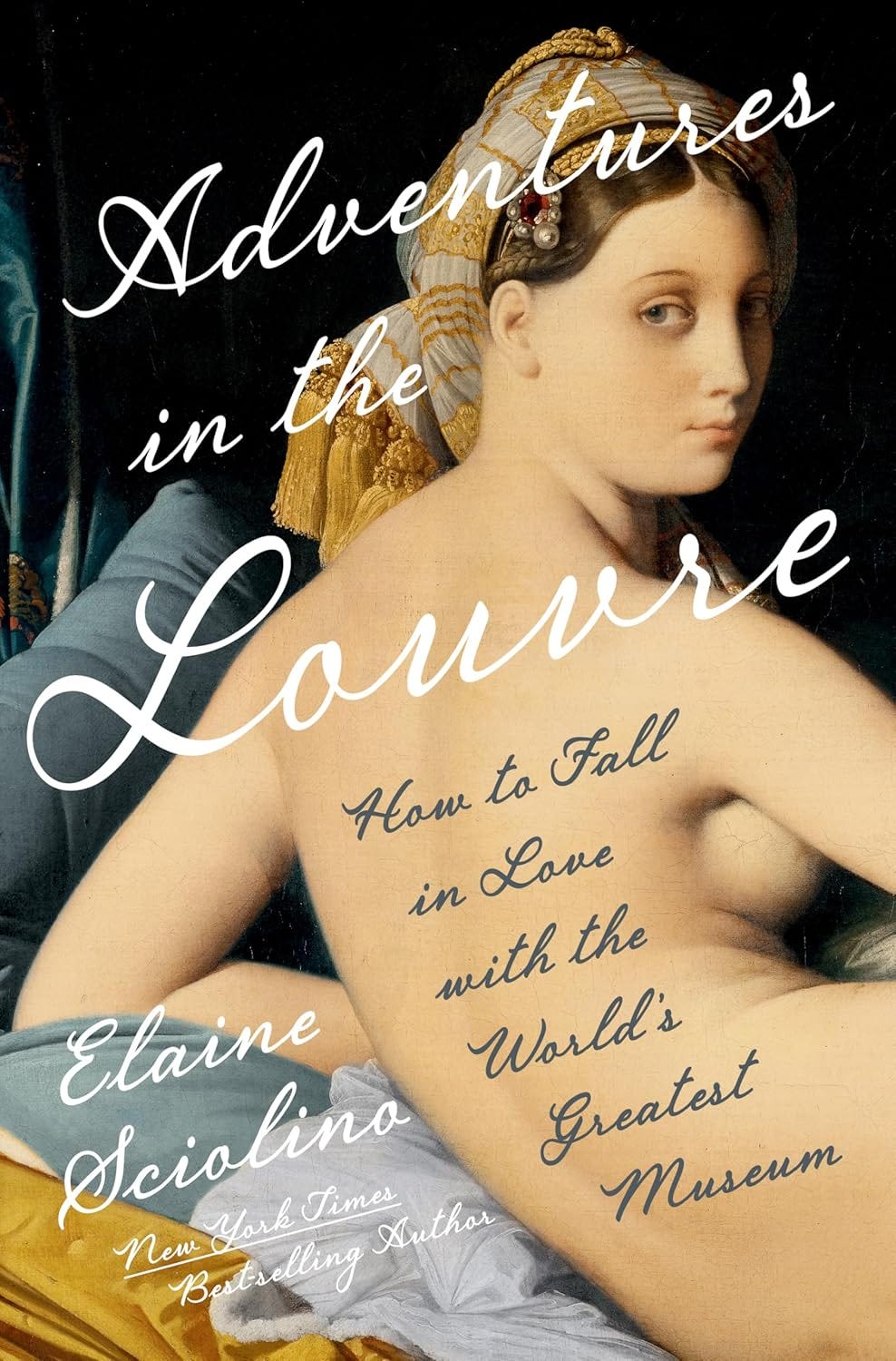
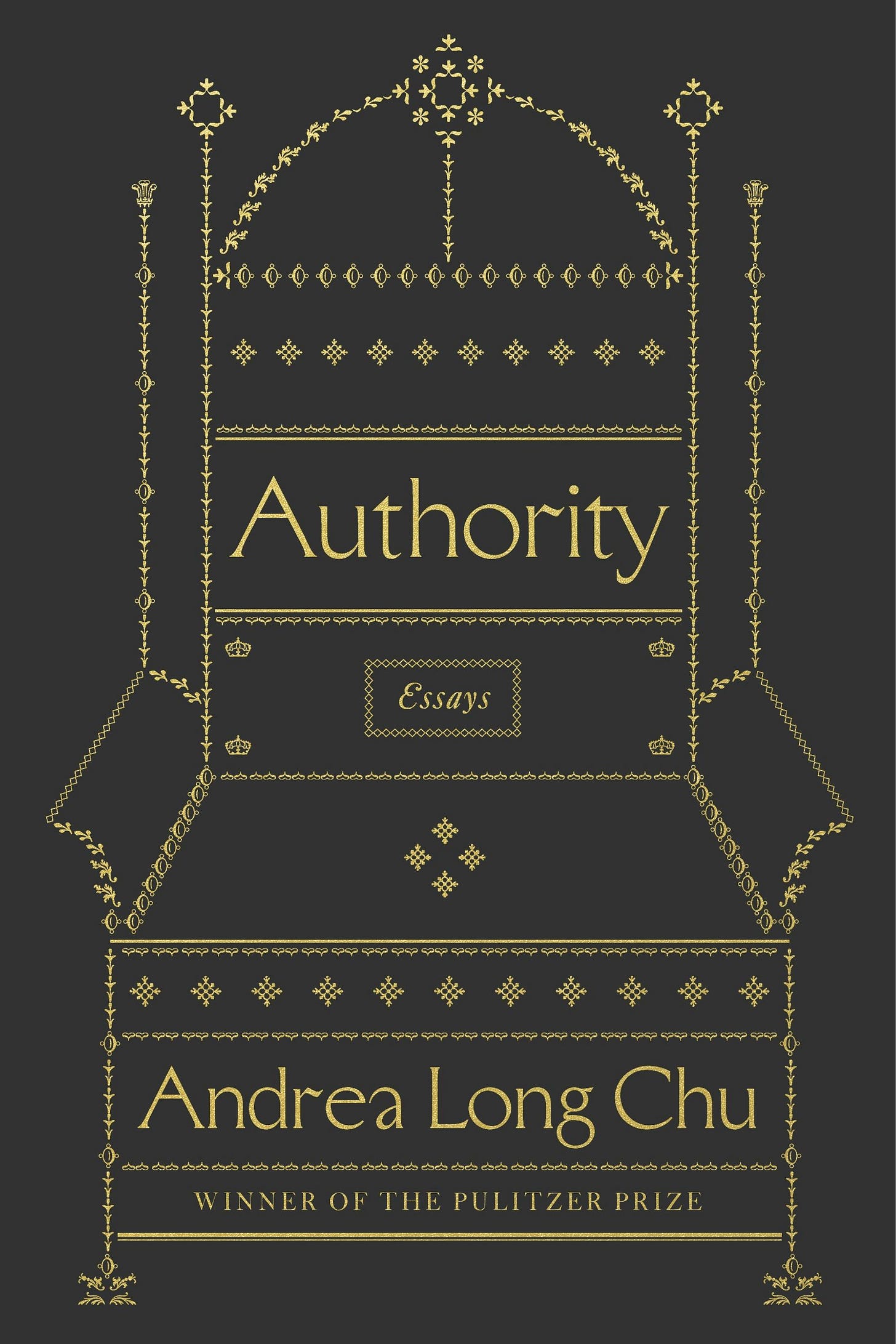
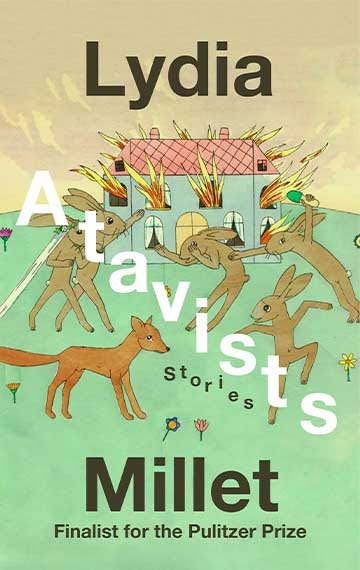


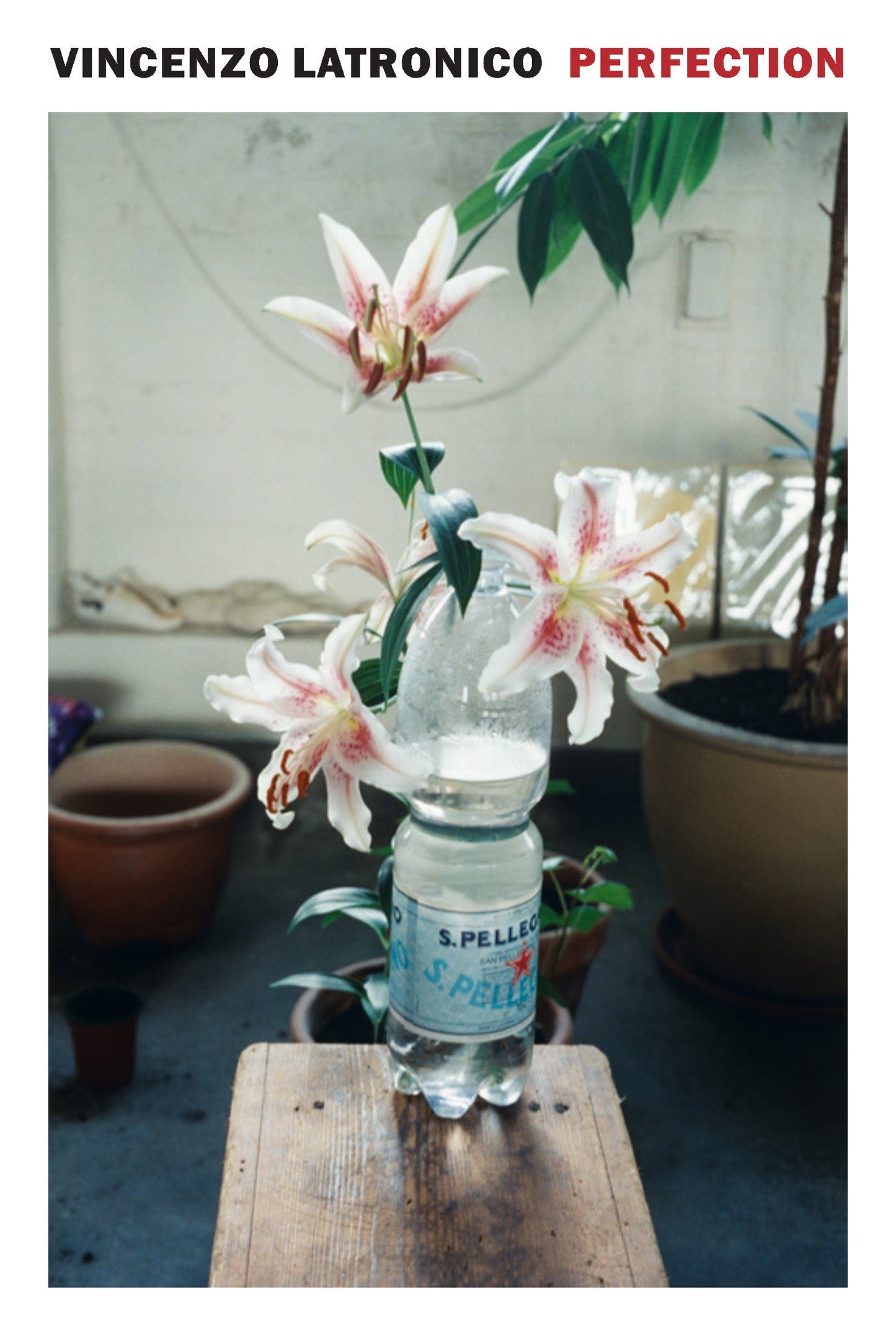

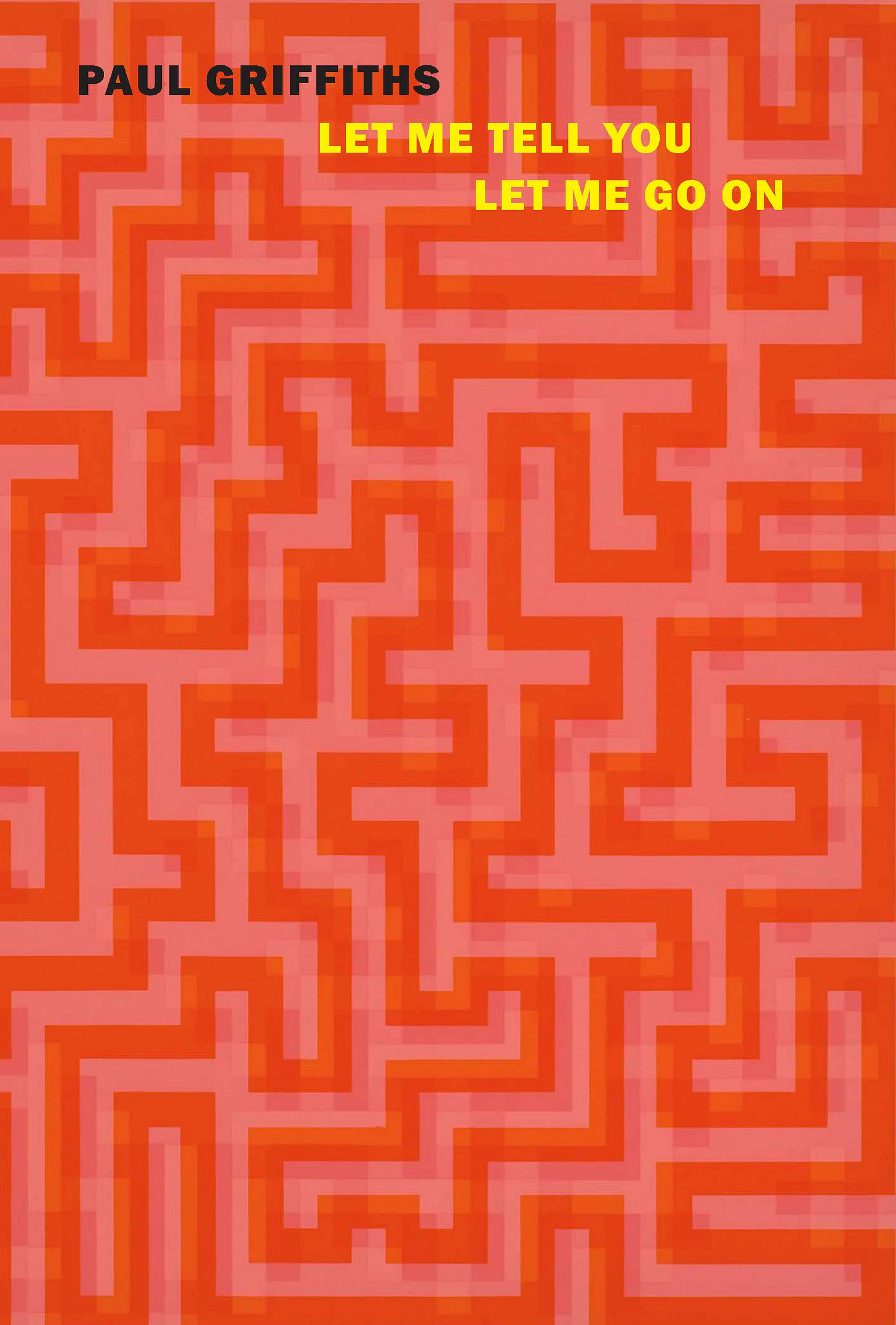

Thanks for the review—my wife celebrates Bastille Day every year (it’s a thing) and I’m always looking for books to get her. This year it will be Adventures in the Louvre!
I always enjoy your book roundups. Appreciate you!